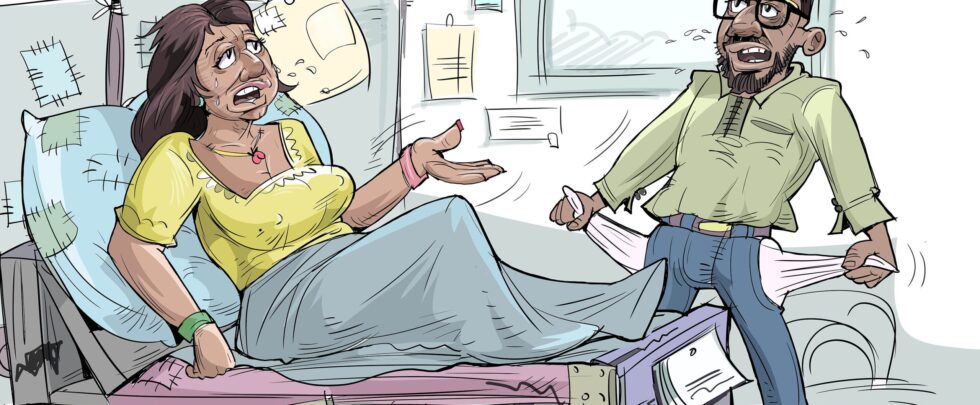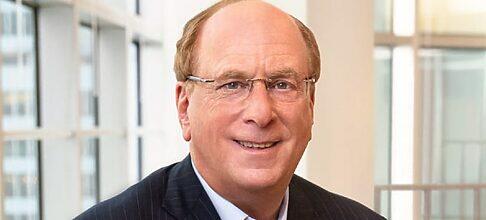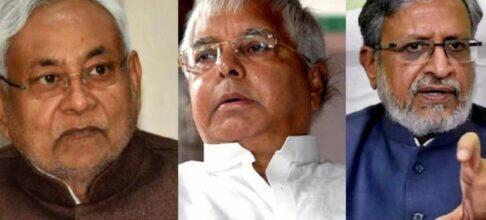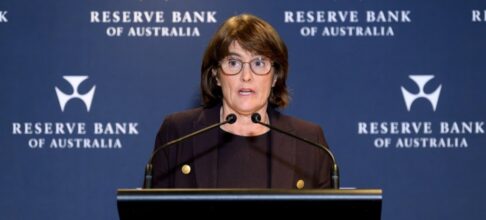Continuing, Awo-Ejeh disclosed that she has completed her chemotherapy and was placed on hormonal drugs by the doctor.
“People think that because I have completed the chemo, I’m done with the whole treatment; but I’m not because the cancer I’m being treated for is hormonal receptive positive. That means I still have another long journey. I am on drugs that I take daily, so I need to keep taking these drugs for the next five years,” she agonised.
Although she is determined to faithfully adhere to her drug prescriptions, the high cost of the drugs has made her to skip some for the past three months, a situation she described as mentally draining.
Awo-Ejeh lamented that cancer patients were turning to beggars to raise funds for their treatment, saying: “You know, we beg so much for everything, almost everything because the treatment is expensive and sometimes even some of our family members, caregivers and people that have contributed for you to do chemo or other treatments get tired of us. They are like she should be through with her treatment by now; but it is a very long journey.
“For three months now, I have not been able to take some of the prescriptions given to me by my doctor because of the price. I remember buying one of the drugs for N200,000 but now the price has skyrocketed. So, I have to keep taking the ones I can afford and you know that this is not good for my health; it’s really affecting me so much. I just try to keep fit and alive, but mentally, it is draining. Recently, I’ve been feeling some pains and I’m scared; I am always thinking it is cancer; maybe because I’m not taking some of my medications. The fear and everything is mentally draining.”
Awo-Ejeh regretted that despite the fact that she is not using three of her medications owing to their exorbitant costs, she still spends about N350,000.00 on drugs on monthly basis, adding that it is a huge financial burden on her husband.
She said: “I spend at least N350,000.00 on drugs on a monthly basis and I’m not working. I am a student; so, I rely on my husband and you know how it is when one person is financing the whole treatment; sometimes, it can get frustrating.”
She appealed to the government to ensure that cancer treatment is fully covered by health insurance and also make the drugs affordable at subsidised rates.
“The Federal Government has this Cancer Health Fund. Sometimes, you will get money in your hospital wallet, but you can’t find some of these drugs in the hospital. If you go to the hospital, they might tell you that they don’t have the drugs and if the hospitals don’t have the drugs, it means you have to pay from your pocket. You have to go outside and buy these drugs with your own money. So, if there’s a way the government can include everything in the insurance, it will really go a long way,” she said.
Another cancer patient, Salome Chidinma Titus, a 41-year-old fashion designer, was diagnosed with breast cancer in early December 2024; but she could not start treatment immediately owing to paucity of funds.
She also told The Guardian that the high cost of treatment is a major barrier she faces to access care. Narrating her ordeal, Titus said: “I started my diagnosis at the Lagos State University Teaching Hospital (LASUTH). It got to a point that there was no money to continue but later, funds were raised for me by an NGO called Project Pink Blue to complete my diagnosis. The result, which came out on December 16, 2024, showed that I had stage two breast cancer and required that I go through chemotherapy. I was highly devastated but I had to brace up with reality. When I was told that the chemotherapy would cost N2.5 million, because I couldn’t afford it, I just packed up.
Narrating her ordeal, Titus said: “I started my diagnosis at the Lagos State University Teaching Hospital (LASUTH). It got to a point that there was no money to continue but later, funds were raised for me by an NGO called Project Pink Blue to complete my diagnosis. The result, which came out on December 16, 2024, showed that I had stage two breast cancer and required that I go through chemotherapy. I was highly devastated but I had to brace up with reality. When I was told that the chemotherapy would cost N2.5 million, because I couldn’t afford it, I just packed up.
“Fortunately, I met a friend who directed me to another place where I started Neo-chemo about two weeks ago.
They said that the Neo-chemo is to shrink the cancer before the surgery, because that side has really grown bigger. If I had not met my friend, I would have remained at home without any treatment; so, finance is a major barrier. I spent N160,000 on the Neo-chemo and they gave me other drugs worth about N12,000 to subside the side effects. Supposing I didn’t see this kind of place, I won’t be under any treatment by now.”
Titus, who looked glaringly burdened by her illness, appealed to the Federal Government to subsidise the cost of cancer treatment to save the lives of patients.
“Since this sickness began, I can’t even do anything because of the pain. The pains became worse after this Neo-chemo. Everything has changed; my body is now weak. I am appealing to the government to subsidise the cost of cancer care and treatment because the cost is very high and a lot of us cannot afford it. But if they subsidise it and also include comprehensive cancer care in the health insurance scheme, it will help to save a lot of lives.”
Cancer is the second leading cause of death globally, according to the World Health Organisation (WHO). An estimated 19.9 million new cases of cancer and almost 10 million deaths from cancer are recorded yearly.
Nigeria records 127,000 new cancer cases and 79,000 cancer-related deaths every year.
Late case presentation, rising cost of diagnosis, cancer drugs and treatment as well as dearth of specialists are exacerbating the cancer scourge in Nigeria.
This is compounded by inadequate cancer equipment, which limits patients’ access to treatment, thereby posing a significant threat to Nigeria’s plan to achieve reduction in cancer morbidity and mortality by 2027.
How Dearth Of Specialists, Equipment Affect Cancer Care
ACCORDING to the Association of Clinical and Radiation Oncologists of Nigeria (ARCON), Nigeria has less than 100 oncologists providing cancer treatment to its over 200 million population.
Based on the International Atomic Energy Agency (IAEA) standards, countries are supposed to have one oncologist per 100,000 population; but in Nigeria, less than 100 oncologists are providing treatment for a population of over 200 million, instead of at least 2,500 oncologists.
Though the IAEA recommends one radiotherapy machine in every 250,000 population, Nigeria, with over 200 million population, has only 10 functional radiotherapy machines, instead of 840 required to effectively cater for cancer patients in the country.
The IAEA said that investing in radiotherapy leads to economic benefits ranging from between $278.1 billion and $365.4 billion worldwide for the period from 2015 to 2035. The agency also revealed that a 50 per cent substitution of conventional radiotherapy with hypofractionated radiotherapy could result in $2.76 billion in cost-savings for prostate and breast cancer.
The agency also revealed that a 50 per cent substitution of conventional radiotherapy with hypofractionated radiotherapy could result in $2.76 billion in cost-savings for prostate and breast cancer.
Besides, Nigeria needs about N97 billion to fight cancer for the five-year period of the plan in line with the National Strategic Cancer Control Plan 2023-2027.
Experts Chart Way Forward
MEANWHILE, experts have raised concerns over the rising cases of cancer in the country, even among young Nigerians.
They called for urgent actions to tackle health inequities, late diagnosis, and financial barriers that turn treatable conditions into fatal ones.
In an interview with The Guardian, the Head of Oncology Department at the Aminu Kano Teaching Hospital, Zaria, Dr. Muhammad Inuwa Mustapha, who decried the high cost of treating different types and stages of cancer, stated that about 80 per cent of patients cannot afford the cost of treatment.
He said: “Most cancer patients cannot afford treatment; diagnosis is very expensive, histology is almost like N15,000 to N20,000 and I am not talking about Abuja or Lagos. Immunohistochemistry costs about N60,000 and you need to do a staging diagnosis. So, in terms of investigation, a patient can spend up to N200,000-N300,000 just to make staging and diagnosis. If you come to treatments, mastectomy costs between N600,000 and N1 million depending on where you are going to have your surgery. The cost of chemotherapy ranges from N500,000 to N2.5 million depending on the variant of the cancer you are treating.
“For immunohistochemistry, a drug for a single cycle costs N2.5 million and the patient needs to take this drug 18 times. So, affordability is a challenging thing for most of my patients. When you come to the radiotherapy, which is also another form of treatment for cancer patients, the cheapest centre in Nigeria charges N800,000; most of the centres charge more than N1 million.
“So, if you combine the financial burden on the patient, it’s too much and most of the patients are paying out-of-pocket because the National Health Insurance Authority (NHIA) only covers for some of the investigation and some chemotherapy. They don’t cover for radiotherapy and also some of the expensive immunotherapy.”
On the number of patients that visit the Aminu Kano Teaching Hospital for cancer treatment, Mustapha said: “On a weekly basis, we see more than 200 cancer patients because we give chemotherapy Monday to Friday. Some are coming as new patients, some are coming for regular follow-up.”
Mustapha lamented that most of the patients visit the hospital at the late stage of the disease, which makes cure impossible.
“At this late stage, usually you cannot offer them cure; you can only do palliation by taking care of the symptoms they have. That is why we are telling the patients to come early at least, so that we can start aiming at cure. Most of our patients that have a long survival came early. I have a lot of survival for 15, 20 and 30 years post-treatment.
“But the challenge we have in making diagnosis in Nigeria is that we can only make this diagnosis at the tertiary facility and some of the patients are coming from the villages. So, even primary healthcare cannot do anything. So there is a delay pathway. We need to strengthen our referral system and also to make our primary healthcare and the secondary facility to be working at least to make a diagnosis.”
Mustapha also pointed out that the exit of multinational pharmaceutical companies from the country has seriously affected the cost of cancer drugs.
On his part, the President of the Nigerian Cancer Society (NCS), Prof. Abidemi Omonisi, said the japa syndrome has seriously affected c ancer care in the country, noting that many experts in the oncology space have left the country to look for greener pastures abroad.
He said: “At the moment, we have less than 100 clinical oncologists in the country and that is a major problem, because ideally, we should have one clinical oncologist to 250-500 patients. According to the latest statistics from the Association of Clinical Radiation and Clinical Oncology of Nigeria, we have almost one to 2,000 patients. This is a major crisis we have in the country.”
Omonisi also decried the awareness gap about cancer, especially in the rural areas, stressing that a lot of patients present with advanced stages of the disease mostly due to misconceptions and superstitions surrounding it.
The NCS president observed that many cancer patients in Nigeria are impoverished by catastrophic health expenditure owing to out-of-pocket payment, adding that the N2 million being credited to the wallets of vulnerable patients, who were able to access the Cancer Health Fund (CHF), is grossly inadequate for cancer care.
Omonisi disclosed that the NCS was planning to establish a Cancer Intervention Fund to mobilise resources from private sector, philanthropies and companies to support cancer survivors.
He said: “We know that cancer affects the health of patients and turns their lives upside down. We also have a cancer survivor, and one of them was a very flourishing engineer. You know, when he had cancer, because he was out of work for a couple of months, he sold his property to take care of his family. This is because about 70 per cent of our patients pay out-of-pocket.”
Omonisi urged the National Assembly to increase the budgetary allocation to the Cancer Health Fund. He also appealed to the Federal Government to fund cancer research to enable the country to come up with a homegrown treatment for the disease.
Also speaking with The Guardian, the Executive Director of Project PINK BLUE, Runcie Chidebe, noted that the prevailing high exchange rate and inflation in the country have pushed the costs of drugs and cancer treatment beyond the reach of many patients.
“There are so many challenges that are coming up in cancer control that we thought a few years ago that we are beginning to solve. Number one is actually the financial cost of treatment of cancer. As we speak, you know because of the increase in the exchange rate and inflation, the cost of all cancer treatment has gone up. The breast mammogram that used to be done with just N5,000 before is now between N15,000 and N18,000; the tumor marker that used to cost about N60,000 or N70,000 is now almost N200,000; chemotherapy that used to cost between N200,000 and N300,000, now costs between N2 million and N3 million,” he said.
Chidebe called on state governments to establish state cancer health funds to support cancer patients in their domains instead of relying on the federal Cancer Health Fund.
He also urged the Federal Government to invest in advanced cancer technologies, precision medicine, and medical equipment instead of just building hospitals.
He added: “Precision medicine targets cancer and hits the main tumor and shrinks that tumor and gets it out. That’s why it’s called precision medicine. Only very few of those precision medicines are available in Nigeria. Building beautiful cancer hospitals is good, but buildings alone cannot save cancer patients; buildings alone cannot reduce the burden of cancer in Nigeria or give cancer patients the best treatment. It is the provision of excellent cancer equipment such as PET CT Scans, brachytherapy, and newer radiotherapy machines that can be used to detect and treat patients.
“As we are talking today, 70 per cent of Nigerians diagnosed with colorectal cancer always die of the disease because the reality is that out of about 8,114 Nigerians diagnosed, almost over 5,900 die.”
Also, the National Chairman of the Oncology and Cancer Care Committee of the Nigerian Medical Association (NMA), Dr. Adamu Alhassan Umar, identified lack of infrastructure and appropriate equipment, inadequate funding, lack of specialist doctors, lack of specialist nurses and pharmacists, and lack of specialist cancer therapists as the major challenges in cancer care in Nigeria.
Umar said that most of the hospitals are ill equipped to treat cancer, noting that there is a lack of multidisciplinary team approach to cancer care in the country.
He stressed that the NMA has encouraged younger colleagues to go into oncology so that the country could have a pool that would be quite handy when it comes to treating cancer.
He urged the government to invest more money in the National Cancer Health Fund and expand the scope of the fund to cover all forms of cancer instead of just the three common cancer types.
The most common types of cancer among Nigerian men are prostate, colorectal and liver cancers. Breast cancer, with over 32,200 new cases and more than 16,300 deaths per year is the most common cause of death from cancer among Nigerian women. Cervical cancer also poses a major challenge, accounting for the second largest number of female cancer deaths in Nigeria.
In 2024, the Federal Government declared cancer a notifiable disease, a development that requires all public and private health-care providers across the country to report all cases of cancer to a centralised registry. This was intended to help the country to track cancer trends and improve patient outcomes.
The Minister of State for Health, Dr Iziaq Salako, had also disclosed that the Federal Government was exploring a unique approach to cancer care through health insurance coverage for cancers, in accordance with the National Health Insurance Authority (NHIA) Act 2022.
However, the experiences of cancer patients and the narrative of experts in the field indicate that there is still much to be done to scale down the number of deaths arising from cancer in Nigeria.















